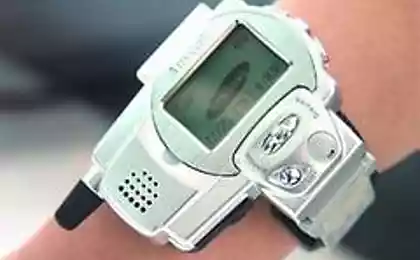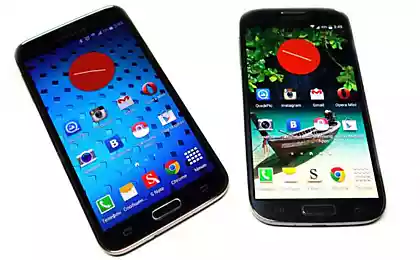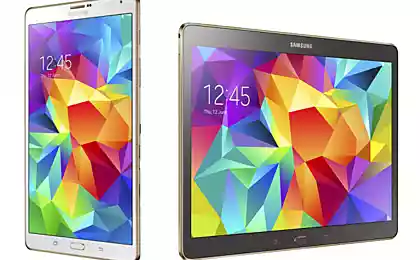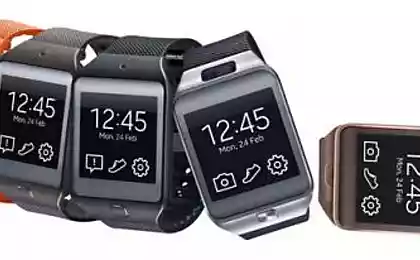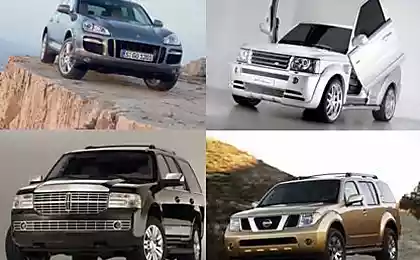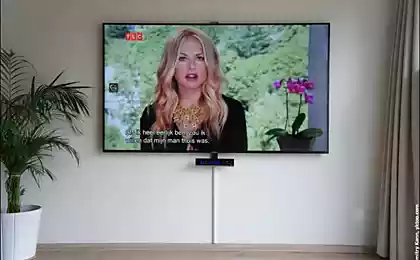567
Solar Internet school in South Africa from Samsung
Despite the fact that in some schools in developed countries have introduced individual iPads for teaching children, the majority of students in Africa still happy at least the availability of electricity in buildings of educational institutions. Not to mention computers, Internet and other technologies.
These facts served as a basis for developing Samsung your implementation project in South Africa solar online schools. According to the head of projects in the field of information technology in South Africa, Thierry Boulanger, many of them failed because a good part of the districts of this region live without access to electricity. In this regard, computer equipment imported from developed countries, simply idle and gathering dust.
On average, only 25% of the population of Africa have access to electricity, resulting in isolated communities without access to education and communication. It is very difficult to socio-economic development of these regions.
A mobile classroom from Samsung, which was recognized as the best solar project of the year at the recent Africa Energy Awards competition, this 12-metrowy container, which is powered by solar panels and provides a comfortable learning environment for 21 children, including access to the Internet. The room is equipped with an interactive whiteboard and individual laptops from Samsung. The school can operate without sunlight for three days.
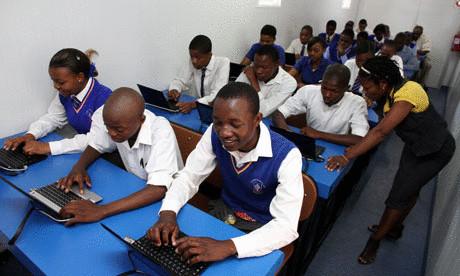
75% of Africa's population live in rural areas, so few young people have access to education. First class mobile from Samsung was launched in Boksburg in October last year and now they are high school students Phomolong in Tembisa.
The Director of the school Macheke Current says that it is the only school in the whole territory with a population of over 350 thousand people. While the school is designed to educate 1200 children, at the moment it accommodates students in 1972. More than 500 of them are orphans, but even children who have parents often cannot afford to pay the tuition. However, the school taught 70 teachers, additional classes in the morning and afternoon, and also provided free meals for 1,500 students. All this has enabled the school to achieve the average score among students – 89 and to receive the award as the best high school in the region.
Current said that as soon as the school has a sun online class, the students discovered a whole new world. Students can use the Internet in your free time that helps them in their academic projects.
According to Boulanger, the containers was created having in mind three priorities: they must be sustainable, not to depend on the mains and must also be able to control the use of the facility.
Solar panels on the roof of the class is made of rubber-like material, so they are not as fragile as conventional panels, making their transportation more secure. Also on the panel are special sensors, which can track their whereabouts if they were stolen.
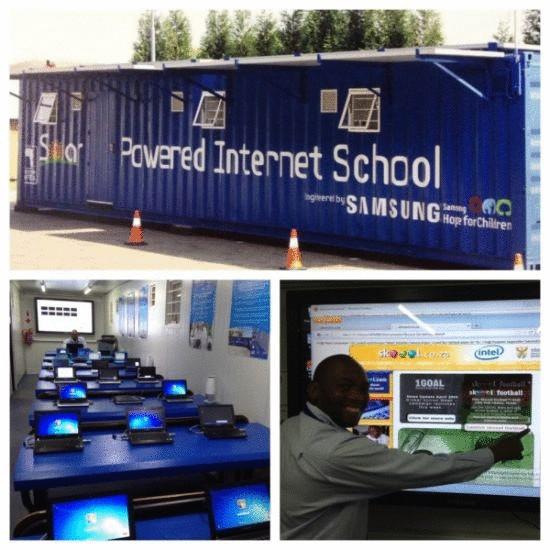
Special technology using lead-acid gel in the panels instead of individual vessels with acid and water allows to avoid leakage of hazardous substances during transportation.
The server that is located in the classroom, can accommodate learning materials for all grades from zero to twelve, which allows saving on the ordering, transportation and storage of textbooks.
Easy access to free electricity in the middle of the countryside in Africa can be quite seductive in terms of what someone might come up with to connect it to a TV, oven or other appliances. The containers are equipped with a security system that sends a signal to regulatory authorities when an unauthorized connection to power sources in the solar class.
Finally, many people know that African sun is the hottest sun in the world, so it heats up very quickly. To protect a metal container from overheating, the walls were embedded 10 cm layer of insulation that reduces the temperature inside by 10 degrees. Also the room is equipped with a ventilation system.
Boulanger believes that the introduction of solar Internet school in South Africa will help to solve many socio-economic problems of the region: "we are Now moving from "Here's a laptop, that's an order, now price" to the "sustainable solution". He adds that some governments have already expressed interest in buying these solar container to install them in local schools on a regular basis.
Source: /users/104
These facts served as a basis for developing Samsung your implementation project in South Africa solar online schools. According to the head of projects in the field of information technology in South Africa, Thierry Boulanger, many of them failed because a good part of the districts of this region live without access to electricity. In this regard, computer equipment imported from developed countries, simply idle and gathering dust.
On average, only 25% of the population of Africa have access to electricity, resulting in isolated communities without access to education and communication. It is very difficult to socio-economic development of these regions.
A mobile classroom from Samsung, which was recognized as the best solar project of the year at the recent Africa Energy Awards competition, this 12-metrowy container, which is powered by solar panels and provides a comfortable learning environment for 21 children, including access to the Internet. The room is equipped with an interactive whiteboard and individual laptops from Samsung. The school can operate without sunlight for three days.

75% of Africa's population live in rural areas, so few young people have access to education. First class mobile from Samsung was launched in Boksburg in October last year and now they are high school students Phomolong in Tembisa.
The Director of the school Macheke Current says that it is the only school in the whole territory with a population of over 350 thousand people. While the school is designed to educate 1200 children, at the moment it accommodates students in 1972. More than 500 of them are orphans, but even children who have parents often cannot afford to pay the tuition. However, the school taught 70 teachers, additional classes in the morning and afternoon, and also provided free meals for 1,500 students. All this has enabled the school to achieve the average score among students – 89 and to receive the award as the best high school in the region.
Current said that as soon as the school has a sun online class, the students discovered a whole new world. Students can use the Internet in your free time that helps them in their academic projects.
According to Boulanger, the containers was created having in mind three priorities: they must be sustainable, not to depend on the mains and must also be able to control the use of the facility.
Solar panels on the roof of the class is made of rubber-like material, so they are not as fragile as conventional panels, making their transportation more secure. Also on the panel are special sensors, which can track their whereabouts if they were stolen.

Special technology using lead-acid gel in the panels instead of individual vessels with acid and water allows to avoid leakage of hazardous substances during transportation.
The server that is located in the classroom, can accommodate learning materials for all grades from zero to twelve, which allows saving on the ordering, transportation and storage of textbooks.
Easy access to free electricity in the middle of the countryside in Africa can be quite seductive in terms of what someone might come up with to connect it to a TV, oven or other appliances. The containers are equipped with a security system that sends a signal to regulatory authorities when an unauthorized connection to power sources in the solar class.
Finally, many people know that African sun is the hottest sun in the world, so it heats up very quickly. To protect a metal container from overheating, the walls were embedded 10 cm layer of insulation that reduces the temperature inside by 10 degrees. Also the room is equipped with a ventilation system.
Boulanger believes that the introduction of solar Internet school in South Africa will help to solve many socio-economic problems of the region: "we are Now moving from "Here's a laptop, that's an order, now price" to the "sustainable solution". He adds that some governments have already expressed interest in buying these solar container to install them in local schools on a regular basis.
Source: /users/104

